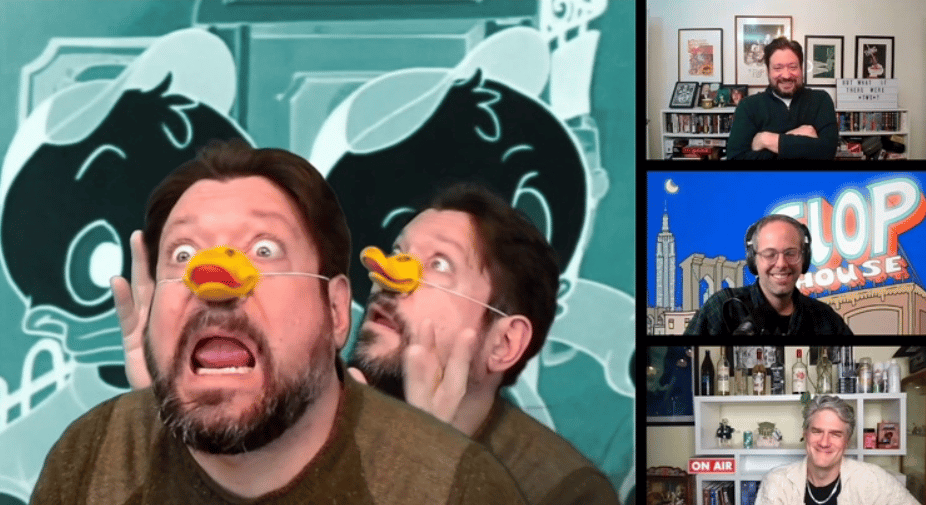- Flop Secrets
- Posts
- The Shape of Things to Come
The Shape of Things to Come
Some words about FlopTV S3 & a visit from the ol' Flop House mailman!
Top Plug of the Week
There will be a fuller announcement on the show releasing tomorrow, but consider this a preview announcement for listeners dedicated enough to subscribe to the newsletter — FLOP TV SEASON 3 is go, with a theme and movies picked! Look for the details in the mid show ad/plug-break, but for now — bookmark this link for when tix go on sale on July 26: theflophouse.simpletix.com!
Last Chance Mailbag
A very quick last chance mailbag this week!
Y'all often point out how movies ostensibly for kids have a lot of stuff in them that a kid wouldn't care about (e.g. corporate stuff in 80's movies). IMO great kids shows have jokes kids and adults alike can enjoy - Sesame Street, the Simpsons, and Bugs Bunny cartoons are prime examples. Would love to hear the three of you discuss what you think makes a successful kids movie that adults can also enjoy, and what makes an unsuccessful one.
Steven lastnamewithheld
When it comes to movies, the simple answer is that the best of them often achieve this kind of “age group transcendence” by grounding themselves in such simple and clear emotions that anyone can understand or relate. Kids might not fully get the ramifications of environmental disaster in, say, Wall-E, but they understand what it is to be lonely, or scared, or to want companionship. There’s also the sort of movie that works by packing the story with stuff that keeps kids engaged, while layering in themes that will fly over kids’ heads. When I watched Labyrinth as a kid, I just enjoyed all the funny-scary puppet creatures. It’s only as an adult that I see how much of it is about making the frightening leap from child to adult and all the confusing feelings (including David Bowie’s tights) that go along with that leap.
If done well, a movie like this reveals different things to you at different points in your life. Contrast that with “bad” movies trying to play both sides of an age divide. Either they wind up spending too much time on stuff adult screenwriters worry about, but has no emotional resonance for a kid (all that corporate intrigue in Santa Claus: The Movie, for example), or they just layer in more crassness — an extra fart joke or four, or a double entendre as (in the word’s of Don DiMello) “a little something for daddy.”
Shorter-form stuff like Sesame Street or The Simpsons strikes me as a little different, where it mostly comes in the shape of cultural references they won’t get yet, but will get in the future. I must admit, as much as I love Sesame Street, I’m not the biggest fan of stuff where they directly parody movies or shows kids would never have seen, because it strikes me as stuff to keep a bored parent happy, but that kids wouldn’t care about… but I’m probably wrong because it still has those adorable Muppets in it, and it’s such a small part of the show that I don’t care that much. And I think The Simpsons performed an invaluable service for me, by presenting a bunch of jokes that I knew were funny, but didn’t necessarily know why. Trying to understand those jokes was a cultural education in and of itself!
Thanks for listening and writing in!
Next on the Podcast
7/19 - We tackle a big one and discuss Captain America: Brave New World. Has the historically “low ceiling but high floor” MCU found a way to lower the floor?
7/26 - Locations in movies are often touted as being “almost like another character” when it’s a big-personality city like New York or Paris, but in this mini Elliott asks — what about the lesser-known cities? Can we define characters for them?
You Made it to the End!
Remember to join us for Flop TV Season 3 by getting tickets next Saturday when they become available! Here’s a context-free screenshot from last season to whet your whistle!

pictured: duck blur